Copyright © 2022 Peking University School of Transnational Law.

2019-04-11 Views: 1
On April 11th, nearly 30 students took part in a program focusing on interviewing and fact development. The session was held in the moot court and was organized by STL Associate Clinical Professor of Law Nicholas Frayn, an experienced criminal defense lawyer who previously worked for the Legal Aid Society in New York City.
Professor Frayn was joined by Professor Lindsay Ernst from Hong Kong University. Professor Ernst specializes in developing interdisciplinary experiential learning opportunities focused on advancing social justice. She also teaches courses in legal research and writing, human rights research and methodology, and international human rights advocacy and practice.
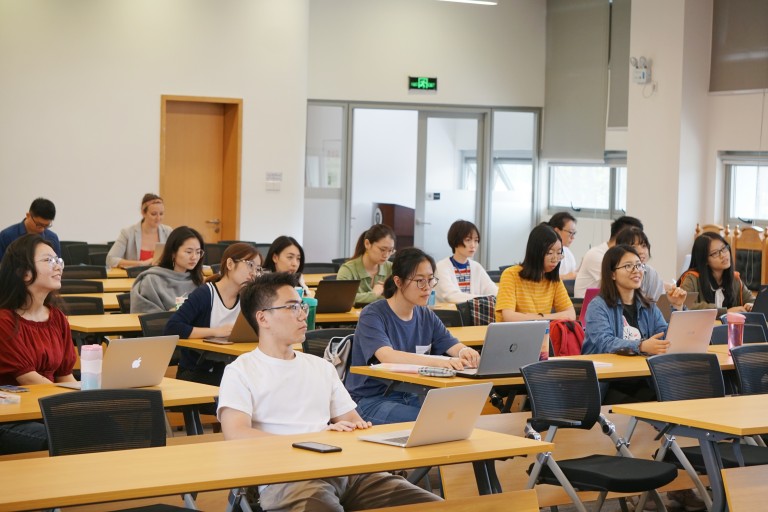
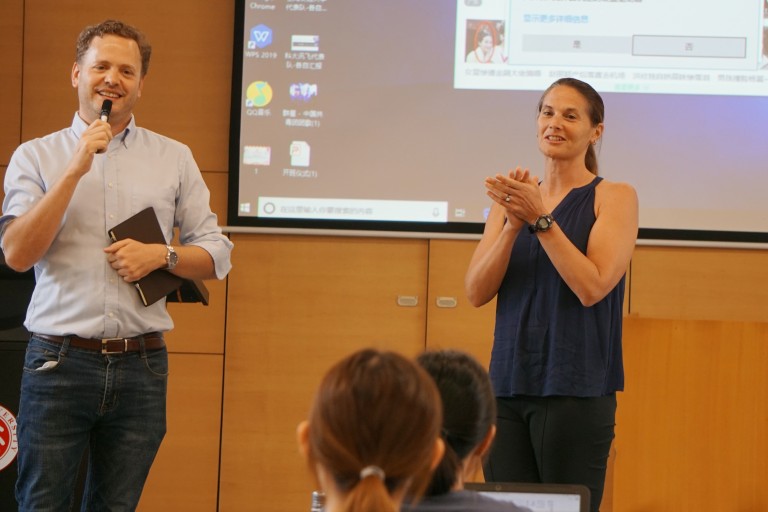
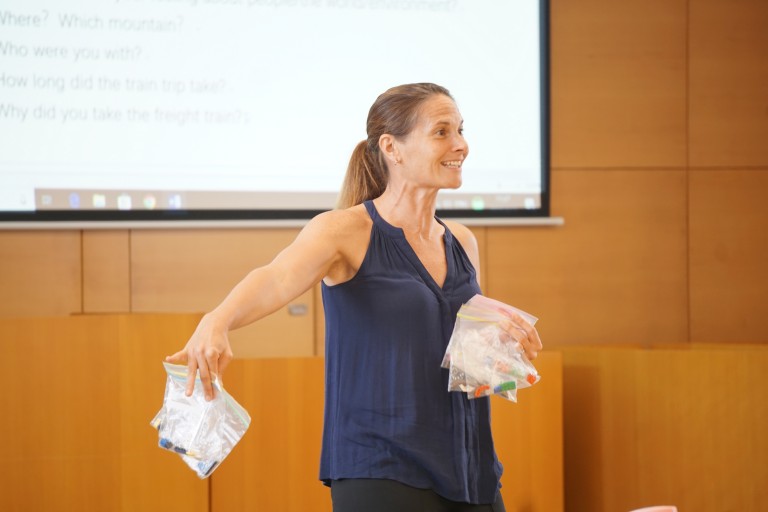
This special class provided students with an unparalleled opportunity to experience the importance of questioning clients in a suitable manner that allows the lawyer to tell the judge the story of his or her client. Professor Ernst started the class with a game. She divided the class into several small groups. Each group had three students: one is the “creator” who uses Lego to create new shapes, while another is the “questioner” who can only ask creator questions, and finally the third player is the “re-creator” who will make the same shape as the creator based on the information he obtained from the conversation with the questioner and creator.
The “creator” here represents the client or the witness, the “questioner” is in the position of the lawyer, while the “re-creator” plays a role similar to the role of the judge. The questioner in this game is controlling because he must decide what information is useful and necessary so that the re-creator can made the same shape.
Professor Ernst explains that “it is really important for a lawyer to know how to ask questions appropriately, either asking your clients or witnesses. You really have to put yourself into the position of a judge to think what information is necessary for recreating the story”. One of the students affirmed the educational value of that game, “the experiment is a perfect analogy to the relationship between the lawyer, the witness and the judge. It taught me that misunderstanding cannot be avoided but can be minimized through asking good questions”.
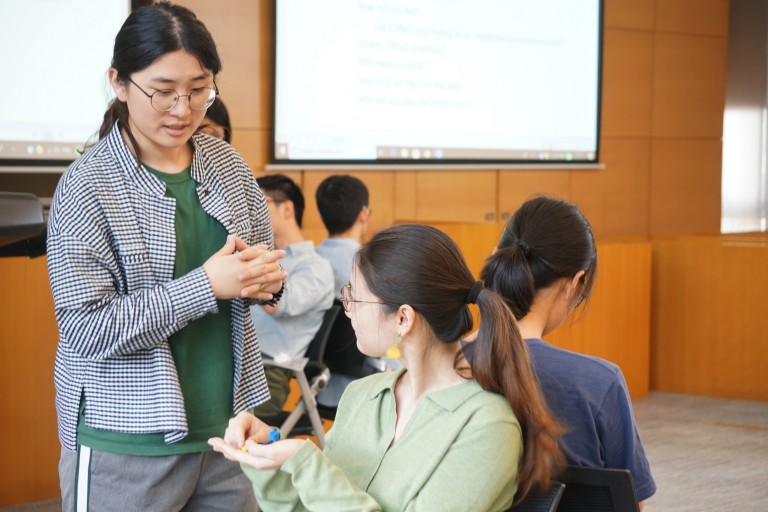
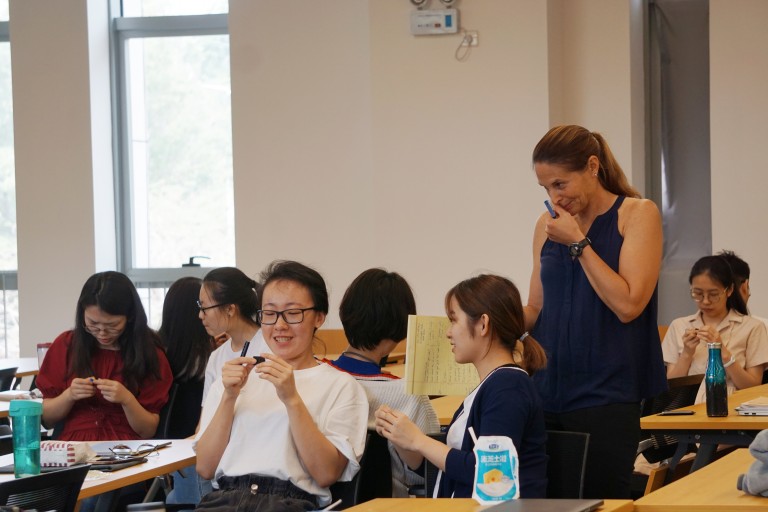
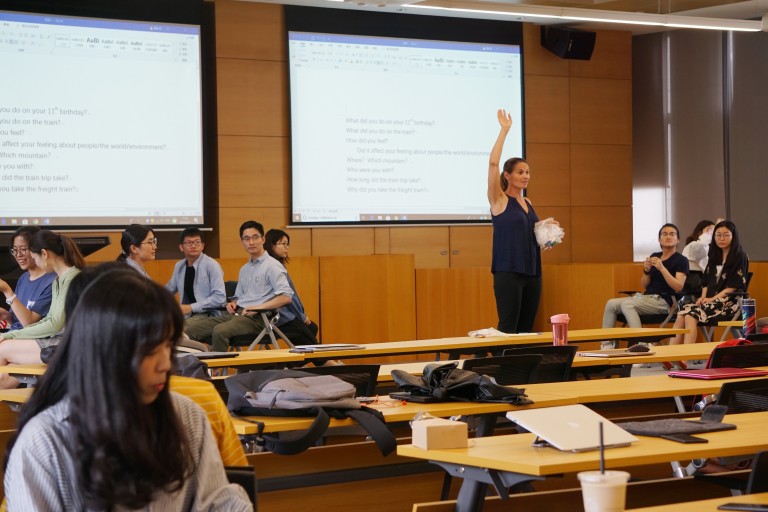
June 29, 2024
June 20, 2024
June 20, 2024
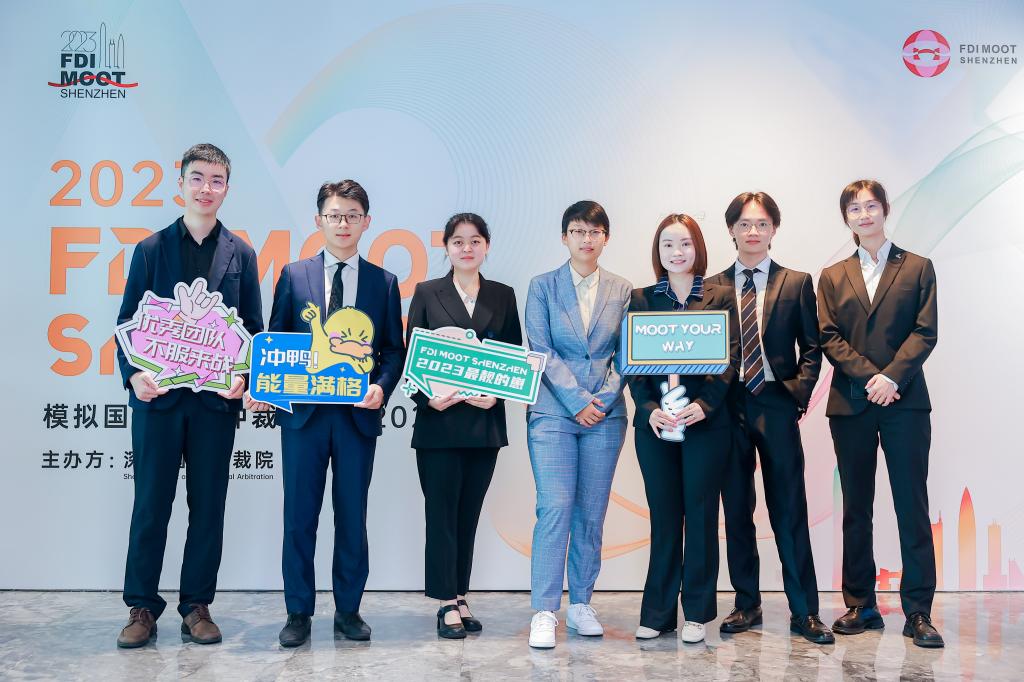
June 20, 2024
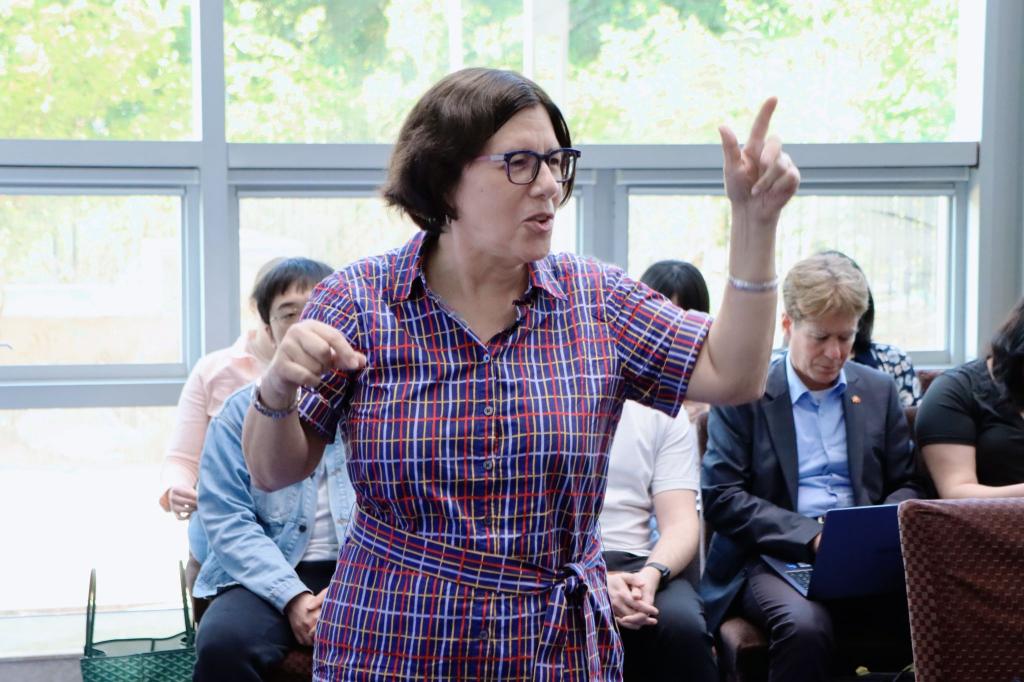
June 19, 2024